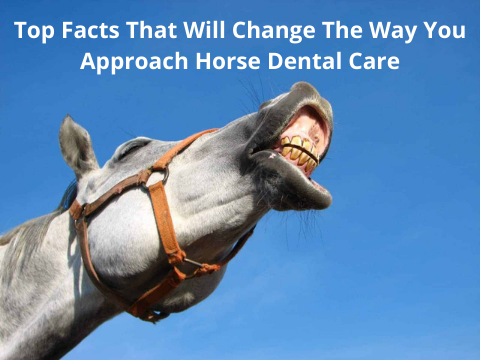19-Feb-2021

First of all, routine dental care is a significant part of ensuring the best health of a horse. Everyday maintenance and periodic examinations, like floating are particularly essential for several reasons. Also, it needs to be understood that pet horses have modified their eating habits through confinements and domestication. Simultaneously, we ask a lot from our performance horses and choose breeding animals without caring for dental factors.
Excellent dental care comes with rewards. That is why horse owners take the help of equine veterinary dental services, which can guarantee their horses' best health. When the horse is comfortable, it will use the feeds efficiently, perform better, and even live longer.
Indeed horses are known as grazing animals, plus their teeth are adapted to it. The forward teeth' function is to shear off the forage, and these teeth are known as incisors. The molars and the premolars are the cheek teeth with broad graveled surfaces responsible for grinding the feed to mash before swallowing it.
Similar to humans, horses get two sets of teeth in their lifetime. The baby teeth are a temporary one, known as deciduous teeth. The last baby teeth grow when the horse is eight months old, and the first generally grows before the foal is born. All the teeth are replaced by adult teeth when the horse reaches two and half years of age. At the age of five, maximum horses have their full set of permanent teeth. There are 40 permanent teeth in an adult male horse. On the other hand, mares may have 36-40 permanent teeth as they are less likely to have canine teeth.
Horses going through dental problems would show discomfort through irritation, pain and it is also possible that they may show no signs at all. Many horses adapt themselves to the discomfort, and hence, they do not show any sign of pain or irritation at all. Therefore, periodic dental examinations are significant to maintain the best dental health of horses. Given below are the top indicators of dental problems in horses.
If you find your horse behaving unusually, dental problems should be checked first before anything else. If you have a foal, it should be examined shortly after the birth and periodically diagnosed in the first year so that congenital dental abnormalities can be treated correctly. The enamel points in yearling are generally sharp, which can damage the cheek and tongue tissue. That is why floating should be done to make them comfortable. Overall it would be wise to have an equine veterinary dental specialist who will guide you through the entire process of care and check-up needs.
Certain jockeys are trained to ride a high number of winner horses. Some wonder
29-Apr-2021